Sherry Alexander's Blog, page 8
April 5, 2015
Kids: Do you know when to call 9-1-1?
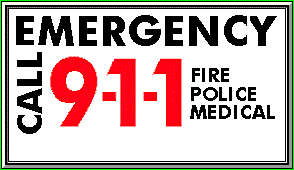 "9-1-1, what's your emergency?""Hello. Is my Nana there?"This is the beginning of the real conversation by my then 5 year-old grand daughter when her mother sent her to bed early. It ended with the dispatcher asking to speak with a parent, and my daughter explaining why "K" called 9-1-1, and why she was sending "K" to bed early. Everyone in the family was embarrassed except for me. Why? Because I not only taught her how to call 9-1-1, but I also worked for 9-1-1. Kids call 9-1-1 all the time for a variety of reasons. Some are valid--my mom is sick, grandpa isn't waking up, mommy and daddy are fighting; and, some are not--my gold fish died, my cat is stuck in the tree, my brother won't give back my book, and yes, can I talk to my Nana, Dad, or Mom.
"9-1-1, what's your emergency?""Hello. Is my Nana there?"This is the beginning of the real conversation by my then 5 year-old grand daughter when her mother sent her to bed early. It ended with the dispatcher asking to speak with a parent, and my daughter explaining why "K" called 9-1-1, and why she was sending "K" to bed early. Everyone in the family was embarrassed except for me. Why? Because I not only taught her how to call 9-1-1, but I also worked for 9-1-1. Kids call 9-1-1 all the time for a variety of reasons. Some are valid--my mom is sick, grandpa isn't waking up, mommy and daddy are fighting; and, some are not--my gold fish died, my cat is stuck in the tree, my brother won't give back my book, and yes, can I talk to my Nana, Dad, or Mom. 9-1-1 is for emergencies that require the police, the firemen, or a paramedic to come and help. This is because something serious or dangerous has happened, and you need help right away. In order to help the dispatcher who answers the 9-1-1 call to send the right people who can help, there are three things every kid needs to know.
You address. Not the P.O. Box where your parents get the mail, but your street address and the city you live in. Ex. 2011 NE Alder Street, Elm City. Some 9-1-1 centers dispatch several towns, cities, or even counties. Your exact address including whether it is a street, drive, route, avenue, or road will help them determine who the closest emergency responder is. This is doubly important if you are using a cell phone. Not all 9-1-1 centers have the capability to zero in on your location. In addition, not all cell phones have GPS which would allow them to zero in on your location. Knowing your address or exactly where you are is the single most important piece of information you can give the 9-1-1 dispatcher.What is an emergency. A cat stuck in a tree, or leaving your homework at school, or being sent to bed early are not emergencies. A fire in your house, the neighbor's house, or in your backyard is an emergency. It's also an emergency if someone is breaking into your house, or one of your parents is too sick to call themselves, or if you are lost, left alone with no word from your parents, or get injured when your parents are not at home.Never, never, never call 9-1-1 as a joke or a prank. It is against the law. It also keeps a dispatcher busy trying to determine whether or not you have a real emergency when he/she could be helping another person whose house is on fire, or who is having a heart attack.While my grand daughter was thoroughly talked to about what is really a 9-1-1 emergency, I was not embarrassed because she remembered that 9-1-1 was a way to get help. Two years later when she was on a field trip and got separated from her class, she again called 9-1-1. She told them where she was, her name, the telephone number on the public phone she was using, and stayed on the phone with the dispatcher until a police office arrived and rejoined her with her group. I would say that was lesson learned.
Published on April 05, 2015 17:34
April 2, 2015
Book Blast: Summer on the Short Bus by Bethany Crandall

Synopsis
Spoiled, Versace-clad Cricket Montgomery has seventeen years of pampering under her belt. So when her father decides to ship her off to a summer camp for disabled teens to help her learn some accountability, Cricket resigns herself to three weeks of handicapped hell.
Her sentence takes a bearable turn as she discovers the humor and likeability of the campers and grows close to fellow counselors. Now, if she can just convince a certain Zac Efron look-alike with amazing blue eyes that she finally realizes there's life after Gucci, this summer could turn out to be the best she's ever had.
Summer on the Short Bus is a very non-P.C., contemporary YA with a lot of attitude, tons of laughs, and a little life lesson along the way.
AMAZON | BARNES & NOBLE | BOOK DEPOSITORY
For more information: Go to Nerd Blast
ABOUT THE AUTHOR
Bethany Crandell lives in San Diego with her husband, two daughters (one of whom is differently-abled), and a chocolate lab with no regard for personal space. She watches too much TV, savors avocados, and is still waiting for Jake Ryan to show up at her door. She writes YA because the feelings that come with life’s “first” times are too good not relive again and again.
WEBSITE: http://www.bethanycrandell.com/
TWITTER: @bethanycrandell
GOODREADS: https://www.goodreads.com/author/show/5830205.Bethany_Crandell
FACEBOOK: https://www.facebook.com/AuthorBethanyCrandell
For a chance to win a $25 gift card sign up here: Jean Book Nerd

Published on April 02, 2015 17:46
March 29, 2015
Teen Drivers: Do You Know What To Do When Stopped By Police?
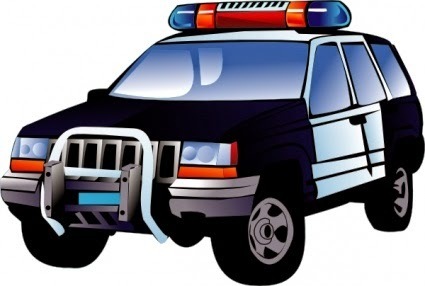 It's dusk on a Friday night, and 17 year-old Amy is driving home after studing at a friend's house. Suddenly, red and blue lights blink in her rear view mirror. It's the police, and they want her to pull over. Does she know what to do? Do you know what to do if you are stopped by the police? Here are six things you should do if you are pulled over.
It's dusk on a Friday night, and 17 year-old Amy is driving home after studing at a friend's house. Suddenly, red and blue lights blink in her rear view mirror. It's the police, and they want her to pull over. Does she know what to do? Do you know what to do if you are stopped by the police? Here are six things you should do if you are pulled over.When you see the lights or hear the siren, use your turn signal and move slowly into the right lane, and then when its safe, move to the emergency lane. Your turn signal and the slower speed will let the officer know that you saw him/her and that you are pulling over.Once you are safely pulled over, roll your window down and turn off your engine.Do not make any sudden movements. Let the officer make contact first. That means don't look under your seat, look through your purse, or dig in the glove box. Keep your hands visible. Ideally, leave them on the steering wheel. Officers approaching vehicles during traffic stops are on high alert. They don't know you or if you have a weapon. Keeping your hands visible keeps the situation from escalating.Remain calm. Answer the officers questions, and when asked, provide your driver's license, registration, and proof of insurance. It helps if these documents are easily retrievable. You don't want to fumble around for them while the officer waits, and worse yet, not even know where these documents are kept.Finally, when the officer says you can go, use your turn signal and ease back into traffic.
Published on March 29, 2015 00:07
March 22, 2015
FIRE! Kids Do You Know What To Do In A Fire?
The recent fire in Brooklyn claimed the lives of 7 kids ages 5 to 16. Sparked by a hot plate on the kitchen counter, the reports are that the kids were trapped by the flames. Now, I've never been in a house fire, but I was only 13 when a neighbor 7 year old boy set his garage ablaze with him inside.
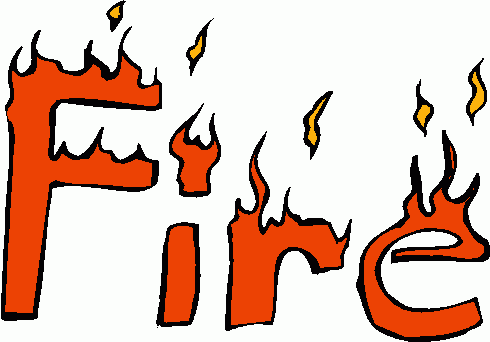 There were no adults around, and I was caring for my younger siblings. My sister called the operator (there was no 9-1-1 in those days) and told her that we needed help. I remember hearing his screams as I tried to fight the fire with a garden hose with my own little brothers watching in horror.
There were no adults around, and I was caring for my younger siblings. My sister called the operator (there was no 9-1-1 in those days) and told her that we needed help. I remember hearing his screams as I tried to fight the fire with a garden hose with my own little brothers watching in horror.
When my children were young, we made sure they knew what to do in case of a fire. We had a plan. But given that seven people die in home fires every single day according to the National Fire Protection Association, I thought it was time to ask:
Kids, do you know what to do in a fire?
Know how to get out. You need to have at least two exits to the outside. When our kids were home, they slept upstairs. One exit was down the stairs. This was great unless the fire was in the kitchen. So, for us the next exit was through the window. We didn't have access to a ladder at that time, but their dad made a rope ladder which we kept in a trunk under the window sill. He also embedded a hook into the wall stud. The kids were taught how to hook the ladder and drop it out the window. Today, there are numerous escape ladders available that can be placed by a window to use in case of a fire. For the basement, he attached a ladder to the wall that led up and out the window. Each window provided a different escape route. Look around your house. Imagine how you would get out if the fire was in the living room, the kitchen, the basement, or the bedroom. Then talk to your parents about making them a safe escape in case of fire.Get out safely. If you are awaken by the smoke alarm, check your door before opening it. Is there smoke coming into the room under or around the door? If there is DO NOT OPEN THE DOOR, and use a different exit to get out. If not, then feel the wood portion of the door. Is it warm or hot to the touch or is it cool? If it's warm or hot, DO NOT OPEN THE DOOR, and use a different exit to get out. If the door is cool, gently touch the door handle with your finger to see if it is hot. If it is hot, DO NOT OPEN THE DOOR, and use a different exit to get out.Hold family fire drills. I cannot overstate this. Parents sometimes assume that kids know what to do in case of a fire. Ask your parents about what they plan to do in case of a fire. Then insist you make a family plan.May you never be in a house fire, but if you are, your safety depends on a quick reaction. Be safe. Plan ahead. Know what to do in a fire! You are our future and we want you to be safe.
 There were no adults around, and I was caring for my younger siblings. My sister called the operator (there was no 9-1-1 in those days) and told her that we needed help. I remember hearing his screams as I tried to fight the fire with a garden hose with my own little brothers watching in horror.
There were no adults around, and I was caring for my younger siblings. My sister called the operator (there was no 9-1-1 in those days) and told her that we needed help. I remember hearing his screams as I tried to fight the fire with a garden hose with my own little brothers watching in horror. When my children were young, we made sure they knew what to do in case of a fire. We had a plan. But given that seven people die in home fires every single day according to the National Fire Protection Association, I thought it was time to ask:
Kids, do you know what to do in a fire?
Know how to get out. You need to have at least two exits to the outside. When our kids were home, they slept upstairs. One exit was down the stairs. This was great unless the fire was in the kitchen. So, for us the next exit was through the window. We didn't have access to a ladder at that time, but their dad made a rope ladder which we kept in a trunk under the window sill. He also embedded a hook into the wall stud. The kids were taught how to hook the ladder and drop it out the window. Today, there are numerous escape ladders available that can be placed by a window to use in case of a fire. For the basement, he attached a ladder to the wall that led up and out the window. Each window provided a different escape route. Look around your house. Imagine how you would get out if the fire was in the living room, the kitchen, the basement, or the bedroom. Then talk to your parents about making them a safe escape in case of fire.Get out safely. If you are awaken by the smoke alarm, check your door before opening it. Is there smoke coming into the room under or around the door? If there is DO NOT OPEN THE DOOR, and use a different exit to get out. If not, then feel the wood portion of the door. Is it warm or hot to the touch or is it cool? If it's warm or hot, DO NOT OPEN THE DOOR, and use a different exit to get out. If the door is cool, gently touch the door handle with your finger to see if it is hot. If it is hot, DO NOT OPEN THE DOOR, and use a different exit to get out.Hold family fire drills. I cannot overstate this. Parents sometimes assume that kids know what to do in case of a fire. Ask your parents about what they plan to do in case of a fire. Then insist you make a family plan.May you never be in a house fire, but if you are, your safety depends on a quick reaction. Be safe. Plan ahead. Know what to do in a fire! You are our future and we want you to be safe.
Published on March 22, 2015 15:48
March 15, 2015
Kids Emulate Courage and Kindness
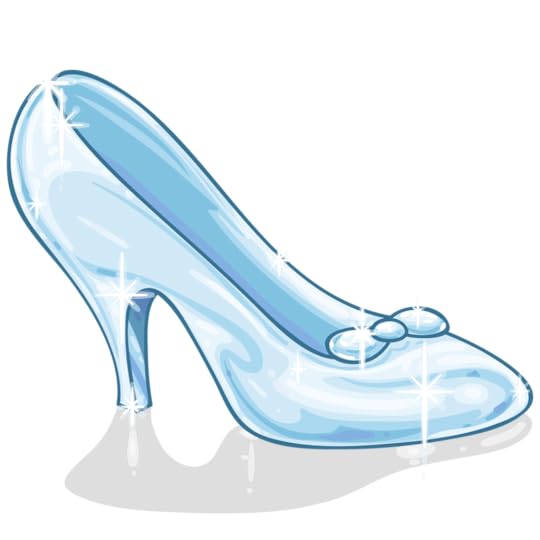 If you haven't seen Disney's newly released "Cinderella", I promise this will not be a spoiler. On Friday, we were privileged to view it with two of our grand daughters, and something struck me as a vital component to a child's character--and no it isn't a glass slipper.
If you haven't seen Disney's newly released "Cinderella", I promise this will not be a spoiler. On Friday, we were privileged to view it with two of our grand daughters, and something struck me as a vital component to a child's character--and no it isn't a glass slipper. It is simply the words, courage and kindness. These are the words Cinderella's mother gave her daughter to live by, and they are character traits I believe are inherent in every child. What does it mean for kids to have courage and kindness? It means that they have have an inborn strength that allows them to face danger, fear, pain, grief, and sadness with compassion, empathy, bravery, boldness, and spunk. It allows them to face the ravages of cancer, disease, loneliness, abandonment, and hunger. And, it is the kindness in them that is seen when they smile through their pain to offer comfort to another child, a parent, a grandparent, or even a stranger in need.
Yes, there are many kids who no longer display their kindness or courage. But, this is not their fault. It is ours--we adults who pride ourselves with being wiser in the ways of the world are to blame. The kids without courage and kindness have had it squished out of them. Their role models have not emulated courage or kindness. They have not worked to build self-esteem, honesty, and self-worth in the children trusted to their care. And, in my opinion, they have failed as role models be they parents, caregivers, grandparents, teachers, aunts, uncles, or whatever.
If you are a trusted role model of a child, take stock of yourself. Do you emulate courage and kindness to the child or children in your care? While it is true that "Cinderella" is just a movie, courage and kindness are inherent values in all of us. I know because I have witnessed it time and time again.
Published on March 15, 2015 14:30
February 22, 2015
Stop Cyber Bullying Now
It is difficult to find a kid these days who does not use an electronic device. It's been estimated that 75 percent of American kids under the age of 8 and under have access to an electronic device be it a cell phone, a smartphone, or a tablet. Even my 5 year-old grandson is adept at trolling through the internet to find the perfect game on his dad's smart phone. So when I say that cyberbullying is on the rise, it shouldn't be a surprise.
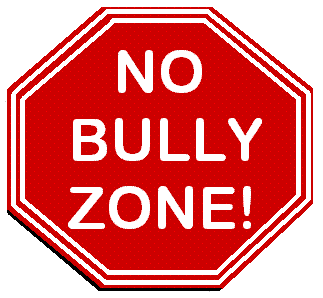
Cyberbullying is a type of bullying that takes place on an electronic device. It's not much different from the traditional playground bullying that still occurs in schools. You know, the kid with an ego problem who finds someone who can't or won''t fight back and singles him/her out for daily abuse--verbal and/or physical. The difference is that cyberbullying can be anonymous, reach a wider audience, and attack at any time of day or night.
This type of bullying comes in many forms. Pictures, email, and instant messaging are just a few of the options for an angry, frustrated, vengeful, bored, or just plain mean kid to use to attack another kid. Sometimes, it is even carried out as a form of entertainment. Even adults have been known to get involved by sending derogatory messages to their child's classmates. All forms of bullying have a devastating affect on kids. A recent study found that more than 160,000 kids stay home from school each day to avoid being bullied. And, the 2013 Youth Risk Behavior Surveillance Survey found 15% of highschool students were cyberbullied.
Stopbullying.gov states that "Kids who are cyberbullied are more likely to:Use alcohol and drugsSkip schoolExperience in-person bullyingBe unwilling to attend schoolReceive poor gradesHave lower self-esteemHave more health problemsWhat can a kid do who discovers he/she is a victim of cyberbullying?
Do not retaliateDo not take it personally--this is hard, but it is not your faultSave the evidenceShare what is going on with your parents, a school counselor, or a teacherTell the person to stopIf through email, change your email addressIf threats are involved, call the policeFor additional information check out these websites:
What is cyberbullying?
Cyber Bullying Research Center
Stop Cyber Bullying
Kids Health

Cyberbullying is a type of bullying that takes place on an electronic device. It's not much different from the traditional playground bullying that still occurs in schools. You know, the kid with an ego problem who finds someone who can't or won''t fight back and singles him/her out for daily abuse--verbal and/or physical. The difference is that cyberbullying can be anonymous, reach a wider audience, and attack at any time of day or night.
This type of bullying comes in many forms. Pictures, email, and instant messaging are just a few of the options for an angry, frustrated, vengeful, bored, or just plain mean kid to use to attack another kid. Sometimes, it is even carried out as a form of entertainment. Even adults have been known to get involved by sending derogatory messages to their child's classmates. All forms of bullying have a devastating affect on kids. A recent study found that more than 160,000 kids stay home from school each day to avoid being bullied. And, the 2013 Youth Risk Behavior Surveillance Survey found 15% of highschool students were cyberbullied.
Stopbullying.gov states that "Kids who are cyberbullied are more likely to:Use alcohol and drugsSkip schoolExperience in-person bullyingBe unwilling to attend schoolReceive poor gradesHave lower self-esteemHave more health problemsWhat can a kid do who discovers he/she is a victim of cyberbullying?
Do not retaliateDo not take it personally--this is hard, but it is not your faultSave the evidenceShare what is going on with your parents, a school counselor, or a teacherTell the person to stopIf through email, change your email addressIf threats are involved, call the policeFor additional information check out these websites:
What is cyberbullying?
Cyber Bullying Research Center
Stop Cyber Bullying
Kids Health
Published on February 22, 2015 12:54
February 1, 2015
Teen Stress Can Lead To Depression
One mental illness we don't talk about in depth is depression. Depression is defined as a "feelings of severe despondency and dejection." It is a deep sadness that occurs when the person loses all sense of hope.
Kids Health states that "17 million people of all age groups, races, and economic backgrounds" are victims of depression. But, what is more disconcerting to me is that 1 in 8 teenagers suffer from depression. While there are many physical and emotional factors that lead to this disease--and yes, depression is a disease, I can't help but wonder what role stress plays.
Stress is that emotional tenseness that develops when a person is scared, angry, overwhelmed, frustrated, anxious, or worried, and if it is left unchecked it can lead to depression. Take sixteen year old, Amy (not her real name), for example. She missed one week of school because of the flu.
"I missed all of my semi-finals. I knew my teachers expected me to make them up my first day back, but when I was sick I couldn't focus enough to read, write, or even concentrate. It was so much pressure that I threw up, and spent the next three days at home again. The next week, I didn't go to school at all. I couldn't. I was so far behind I knew I'd never get caught up, so I checked out. All I wanted to do was sleep so the pressure would go away. If it hadn't been for my mom's insistence that I see a counselor, I'd still be laying in bed."
Teens today are under more stress than ever before. Parents, teachers, friends, bullies, coaches, social media, and even a teen's own emotional growth can cause stress. At times, it must seem that everyone is either pushing or pulling them in one direction or another. What's a teen to do? Here are four tips that might help.
Exercise. Walk the dog, run around the block, or jump up and down on a trampoline. Physical activity is the best way to ease anxiety and give your mind a break. Yes, there are all kinds of scientific reasons this works, but all you need to know is that it does.Take a breather. I don't mean a break. I mean close your eyes, and breathe in slowly and deeply. Hold it for a few seconds, then let the air out just as slowly.Don't handle it alone. Talk to someone you trust--a parent, a friend, or another family member-- about whatever problem you are facing. Don't be afraid to ask for help. If you can't find help at home, try school.

Kids Health states that "17 million people of all age groups, races, and economic backgrounds" are victims of depression. But, what is more disconcerting to me is that 1 in 8 teenagers suffer from depression. While there are many physical and emotional factors that lead to this disease--and yes, depression is a disease, I can't help but wonder what role stress plays.
Stress is that emotional tenseness that develops when a person is scared, angry, overwhelmed, frustrated, anxious, or worried, and if it is left unchecked it can lead to depression. Take sixteen year old, Amy (not her real name), for example. She missed one week of school because of the flu.
"I missed all of my semi-finals. I knew my teachers expected me to make them up my first day back, but when I was sick I couldn't focus enough to read, write, or even concentrate. It was so much pressure that I threw up, and spent the next three days at home again. The next week, I didn't go to school at all. I couldn't. I was so far behind I knew I'd never get caught up, so I checked out. All I wanted to do was sleep so the pressure would go away. If it hadn't been for my mom's insistence that I see a counselor, I'd still be laying in bed."
Teens today are under more stress than ever before. Parents, teachers, friends, bullies, coaches, social media, and even a teen's own emotional growth can cause stress. At times, it must seem that everyone is either pushing or pulling them in one direction or another. What's a teen to do? Here are four tips that might help.
Exercise. Walk the dog, run around the block, or jump up and down on a trampoline. Physical activity is the best way to ease anxiety and give your mind a break. Yes, there are all kinds of scientific reasons this works, but all you need to know is that it does.Take a breather. I don't mean a break. I mean close your eyes, and breathe in slowly and deeply. Hold it for a few seconds, then let the air out just as slowly.Don't handle it alone. Talk to someone you trust--a parent, a friend, or another family member-- about whatever problem you are facing. Don't be afraid to ask for help. If you can't find help at home, try school.

Published on February 01, 2015 13:19
January 25, 2015
Kids Are Still Hungry!
It's 2015, and kids are still going hungry. One in five kids are still facing hunger, and that is unacceptable.
If you follow my blog, you know that kids are my passion. You also know that Feeding America, the Portland Police Bureau's Sunshine Division, and the Clark County, WA Food Bank are especially important to me in the fight against child hunger. Each of these organizations devote their resources to feeding kids and their families. Why? Because without the proper nutrition, our nation's children are an endangered species.
How can I say that? Have you ever seen a hungry child? Now, I am not talking about the kid who missed lunch because he wanted to play basketball instead. I am talking about the child who didn't have dinner last night or the night before. The child who has no food in the cupboard at home, or the one whose parent(s) has to decide whether to buy food or keep the house warm. The child who has lost the energy to keep up with other kids. The child who is sick more often that not. The child who can't focus on schoolwork. The child who may stand off by his/herself and appears anti-social. The child who has a hollowness in his/her belly that shows in the eyes.
How can anyone say that a child suffering from hunger is not an endangered species. Yes, some schools supply reduced or free lunches, and some even supply breakfast. But, not all do, and that means that a lot of kids have no idea when they will have their next meal.
I wrote Oliver's Hunger Dragon to spread the word about hunger and how it affects kids. But you don't have to write a book to help end hunger and save our kids. You can . . .
Help support your local food bank--give food and/or give your timeOrganize a food driveSpread the word about hunger and what it does to kidsIf your school does not have a free lunch or breakfast program, start oneBecome an advocate--speak out to your legislators--make them see what hunger does
You and I can make a difference! Help save our kids.
If you follow my blog, you know that kids are my passion. You also know that Feeding America, the Portland Police Bureau's Sunshine Division, and the Clark County, WA Food Bank are especially important to me in the fight against child hunger. Each of these organizations devote their resources to feeding kids and their families. Why? Because without the proper nutrition, our nation's children are an endangered species.
How can I say that? Have you ever seen a hungry child? Now, I am not talking about the kid who missed lunch because he wanted to play basketball instead. I am talking about the child who didn't have dinner last night or the night before. The child who has no food in the cupboard at home, or the one whose parent(s) has to decide whether to buy food or keep the house warm. The child who has lost the energy to keep up with other kids. The child who is sick more often that not. The child who can't focus on schoolwork. The child who may stand off by his/herself and appears anti-social. The child who has a hollowness in his/her belly that shows in the eyes.
How can anyone say that a child suffering from hunger is not an endangered species. Yes, some schools supply reduced or free lunches, and some even supply breakfast. But, not all do, and that means that a lot of kids have no idea when they will have their next meal.
I wrote Oliver's Hunger Dragon to spread the word about hunger and how it affects kids. But you don't have to write a book to help end hunger and save our kids. You can . . .
Help support your local food bank--give food and/or give your timeOrganize a food driveSpread the word about hunger and what it does to kidsIf your school does not have a free lunch or breakfast program, start oneBecome an advocate--speak out to your legislators--make them see what hunger does
You and I can make a difference! Help save our kids.
Published on January 25, 2015 16:30
January 18, 2015
Do Kids Really Know Who Martin Luther King Was?
At the end of the school week, our teacher reminded the class that there was no school on Monday, January 19th, in honor of Martin Luther King. I was not surprised that most of the kids found the idea of no school exciting. However, I was surprised by the number of kids who had no idea who MLK was. "Who is Martin Luther King?" they asked. "Why is he important?"
Now, I have to say that our school is a directed home school. What that means is that we spend two days studying math, science, grammar, spelling, writing, and social studies in class, and three days studying those subjects and more at home. Our teacher, who is "wonderful" according to my 4th grade granddaughter and myself, directed the kids with questions to discuss Mr. King with their parents as part of their home school history lesson.
Leaving class that day made me wonder if it could really be true that these kids did not know who Martin Luther King was or what he accomplished? Then I had to ask myself, "Does my granddaughter know?" I didn't have to wait long for the answer.
As soon as we got to the car, my granddaughter brought up the subject of Mr. King. Here is our conversation, but please know that everything she says is in terms of her favorite book, Ever After High by Shannon Hale, and the characters she has grown to love.
"How come none of the kids knew who Reverend King was, Nana? Mom taught me about him a long time ago."
"What did Mom teach you about him," I asked.
"He was a preacher who taught people that the color of your skin doesn't make you different. Just like Cedar (the daughter of Pinocchio) has brown skin and Apple White (the daughter of Snow White) has white skin. They're the same. Who cares what color their skin is? I love them both. They act different, but Mom said that's just something she called personality. She said everyone should be treated he same. I thought everyone knew that. Right, Nana? But, it was nice that Reverend King made people remember."
Out of the mouth of babes!
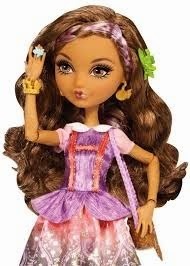
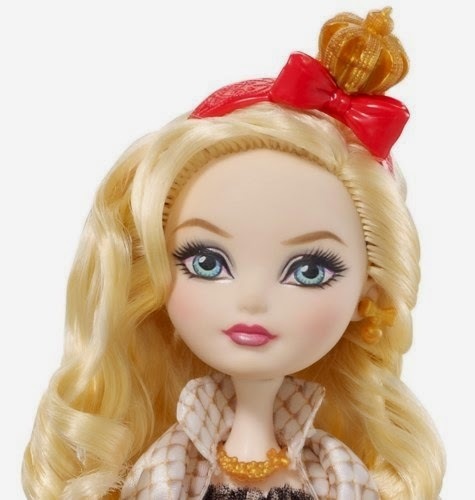
Now, I have to say that our school is a directed home school. What that means is that we spend two days studying math, science, grammar, spelling, writing, and social studies in class, and three days studying those subjects and more at home. Our teacher, who is "wonderful" according to my 4th grade granddaughter and myself, directed the kids with questions to discuss Mr. King with their parents as part of their home school history lesson.
Leaving class that day made me wonder if it could really be true that these kids did not know who Martin Luther King was or what he accomplished? Then I had to ask myself, "Does my granddaughter know?" I didn't have to wait long for the answer.
As soon as we got to the car, my granddaughter brought up the subject of Mr. King. Here is our conversation, but please know that everything she says is in terms of her favorite book, Ever After High by Shannon Hale, and the characters she has grown to love.
"How come none of the kids knew who Reverend King was, Nana? Mom taught me about him a long time ago."
"What did Mom teach you about him," I asked.
"He was a preacher who taught people that the color of your skin doesn't make you different. Just like Cedar (the daughter of Pinocchio) has brown skin and Apple White (the daughter of Snow White) has white skin. They're the same. Who cares what color their skin is? I love them both. They act different, but Mom said that's just something she called personality. She said everyone should be treated he same. I thought everyone knew that. Right, Nana? But, it was nice that Reverend King made people remember."
Out of the mouth of babes!


Published on January 18, 2015 11:52
January 10, 2015
KIDS AND PREJUDICE
With everything that happened this week in Paris, people are once again taking up the prejudice banner. They are speaking out on Facebook, in blogs, in interviews, and on other social media sites about the hazards of trusting others because of their religious beliefs. Now I don't really care what adults believe. Their opinions have had years to percolate and boil until the fear that started them down their chosen road has become almost natural to them. But, I do care what kids think!
No child is born intolerant to different opinions. All you have to do is visit a day care center or a Homestart classroom to confirm it. Once inside, you will see kids from every race, religion, and belief, playing and learning side-by-side. This is the way the world should be as far as I am concerned. However, this is not the case. Why? Could it be that prejudice is actually a learned response?
The dictionary defines prejudice as a"preconceived opinion that is not based on reason or actual experience". So, if it is not actually based on reason or experience, how do kids develop prejudices? You have it--from the adults around them.
Not too long ago I met a 9 year old who was appalled that his classmate said "Oh God". So, expecting to hear that it wasn't right to use the word in vain, I asked him why he was upset. His response, "Because he doesn't even believe in God. He believes in Mohammad."
Really? And, who started him down the path to prejudice? Is it too late to alter his path, and the path of so many kids who have learned how to be intolerant of others? In a word--NO! Any learned behavior can be unlearned. But why start down that road in the first place? Kids need to be raised in a prejudice-free zone.
They need to know where they came from and be willing to share their heritage with others. They need to experience different cultures whether through friends, books, or the community. They need to be surrounded with people who are willing to stand up for others who may be suffering prejudice, and explained why it is important to do so. They need not fear others just because of the color of their skin, their culture, or the clothing they wear for religious reasons. And, above all, they need as much accurate information--good and bad--as possible so that they can make up their own minds whether a situation is true or not.
Kids are not born prejudice, and this would be a much better world if they stayed that way.
No child is born intolerant to different opinions. All you have to do is visit a day care center or a Homestart classroom to confirm it. Once inside, you will see kids from every race, religion, and belief, playing and learning side-by-side. This is the way the world should be as far as I am concerned. However, this is not the case. Why? Could it be that prejudice is actually a learned response?
The dictionary defines prejudice as a"preconceived opinion that is not based on reason or actual experience". So, if it is not actually based on reason or experience, how do kids develop prejudices? You have it--from the adults around them.
Not too long ago I met a 9 year old who was appalled that his classmate said "Oh God". So, expecting to hear that it wasn't right to use the word in vain, I asked him why he was upset. His response, "Because he doesn't even believe in God. He believes in Mohammad."
Really? And, who started him down the path to prejudice? Is it too late to alter his path, and the path of so many kids who have learned how to be intolerant of others? In a word--NO! Any learned behavior can be unlearned. But why start down that road in the first place? Kids need to be raised in a prejudice-free zone.
They need to know where they came from and be willing to share their heritage with others. They need to experience different cultures whether through friends, books, or the community. They need to be surrounded with people who are willing to stand up for others who may be suffering prejudice, and explained why it is important to do so. They need not fear others just because of the color of their skin, their culture, or the clothing they wear for religious reasons. And, above all, they need as much accurate information--good and bad--as possible so that they can make up their own minds whether a situation is true or not.
Kids are not born prejudice, and this would be a much better world if they stayed that way.
Published on January 10, 2015 14:12



